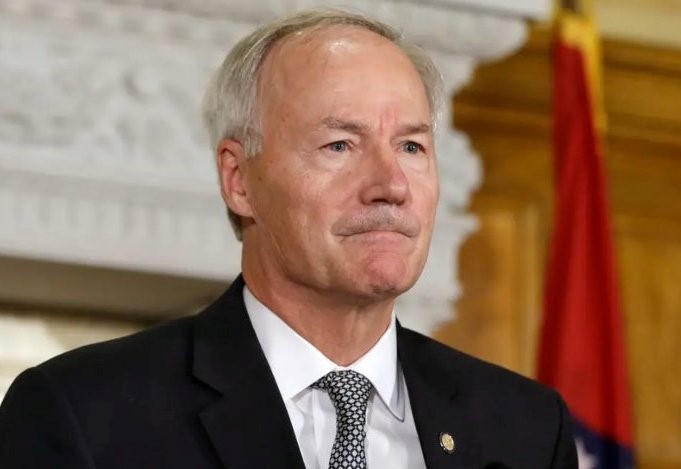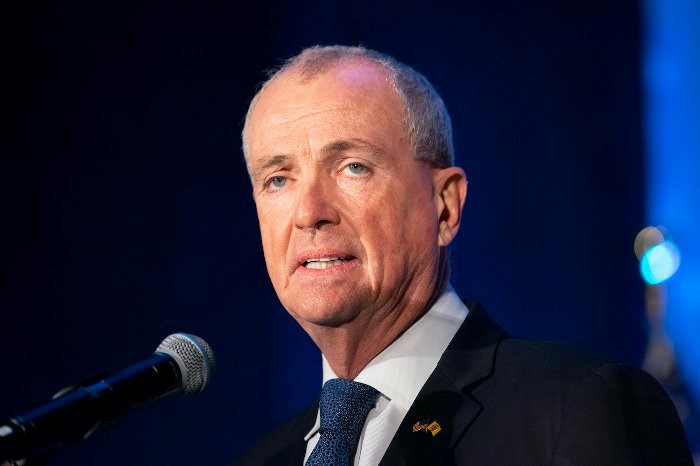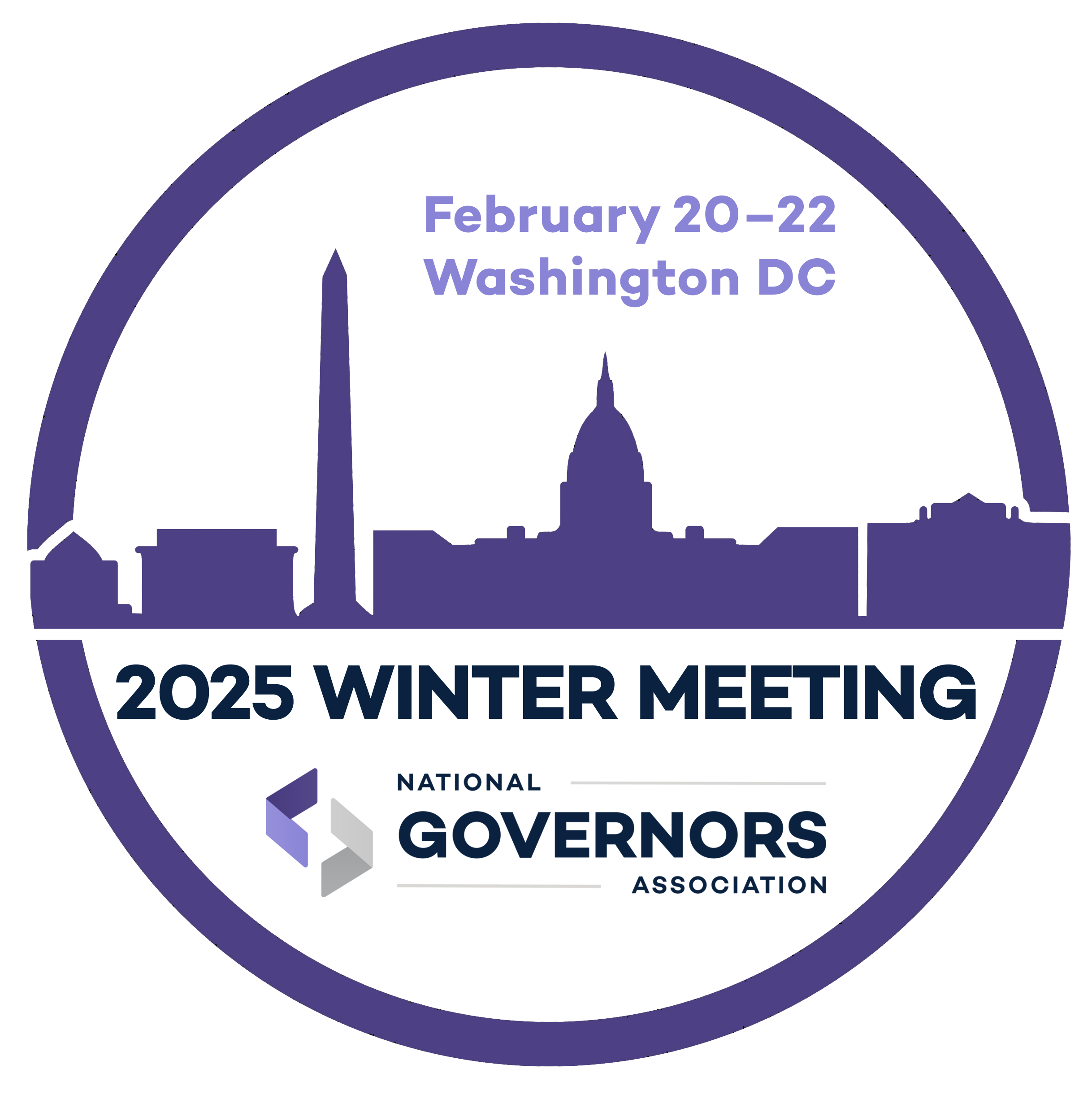Updates from the NGA Membership Team for April 2022. For more about the programs below and a list of upcoming events please email us at: membership@nga.org.
Ukraine
As Governors prepare to welcome people fleeing Russia’s invasion of Ukraine, NGA hosted a briefing on the topic. In late March, Governors were briefed by Dr. Condoleezza Rice, former secretary of state, and Dr. Michael McFaul, former ambassador to Russia. Both are now with the Hoover Institution at Stanford University.
NGA will continue to provide resources and support on these issues.


“The decision to accept refugees from Ukraine is the right decision. The United States has long been a welcoming country to those fleeing war and persecution, and Arkansas is ready to do our part.”
NGA Chairman Arkansas Governor Asa Hutchinson

“We will welcome Ukrainian refugees with open arms here in New Jersey. Our state has long stood as a beacon of hope to the world, and we will do everything in our power to help these refugees rebuild their lives in the wake of Putin’s cruel invasion.”
NGA Vice Chairman New Jersey Governor Phil Murphy
NGA Chairman’s Initiative: Computer Science Education K-12
The next meeting on Governor Asa Hutchinson’s NGA Chairman’s Initiative will take place May 18-19 in Boston, Massachusetts. Governor Charlie Baker will host.
The meeting will highlight the connection between K-12 computer science education and pathways to careers for students with high proficiency in digital literacy. Participants will hear from a panel of high-level executives from large companies discussing the types of skill sets companies need and how they are connecting to student pipelines to meet their workforce needs. The meeting will also feature Governors’ discussion and a demonstration activity to give participants a first-hand experience with practical applications of computer science.
Governor Hutchinson is in communication with his fellow Governors and is asking them to sign a compact committing to advance computer science education in their states and territories. The initiative not only connects more schools, more teachers and more students with digital literacy, but also achieves a national economic objective of providing employers with a capable workforce and supports U.S. national security.
Governor Hutchinson hosted a March meeting about the Chairman’s Initiative in Bentonville, Arkansas, where he welcomed his neighbor, Tennessee Governor Bill Lee.
The Bentonville meeting focused on how states are implementing computer science education policy. Each state takes a unique approach to expanding computer science education, and attendees heard from national experts, as well as prominent education officials from six states.
Johnny Key, secretary of the Arkansas Department of Education, moderated the panel with participants: Richard Hartley, senior policy advisor to Lousiana Governor John Bel Edwards; Dawn Morrison, computer science state administrator in Alabama; Dianne O’Grady-Cunniff, director of the Maryland Center for Computing Education; Dominick Sanders, computer science state supervisor in South Carolina; and Margie Vandeven, commissioner of the Missouri Department of Elementary and Secondary Education. Attendees also heard the perspectives of four computer science students from Arkansas, Missouri, Oklahoma and Tennessee. Romy Drucker, director of K-12 education programs for the Walton Family Foundation, led the students’ discussion.

Government Relations
Legislative Update: COVID-19 Package Retains Funding for States and Territories
The Senate has reached a bipartisan agreement on a $10 billion COVID-19 supplemental appropriations package, an amendment to H.R. 4373. While the package is less than half the White House request for $22.5 billion, it keeps all previous state and local funding intact. Additionally, it gives state, local and tribal governments greater flexibility to spend federal pandemic relief funding on infrastructure and community development projects.
The $10 billion in funding is fully offset against unobligated balances from previously passed COVID-19 packages.
The package retains funding for federal purchases of more vaccine — including vaccine doses for children, adult boosters and new vaccines under development for emerging variants — as well as purchases of currently available therapeutics, including antiviral pills and monoclonal antibody treatments. It would also fund the maintenance of current testing production so that manufacturing capacity does not decline.
The final compromise does not include the $5 billion in global health funding that was originally agreed to but omitted from the 2022 omnibus.
The funding is directed to the Public Health and Social Services Emergency Fund, most of which would be available for the Biomedical Advanced Research and Development Authority. Funding could be transferred to the National Institutes of Health if needed, although the Department of Health and Human Services would have to provide detailed spending plans and regular obligation reports on the funds to Congress.
The $10 billion Senate agreement on the supplemental appropriation was released on April 4 and is expected to receive floor consideration the week of April 25. Resources: Full text of the proposed compromise legislation; summary of the bipartisan agreement from Senate Democrats; summary from the office of Utah Senator Mitt Romney; and the CBO score.
NGA Resources on Fiscal Year 2022 Appropriations
Congress completed and President Biden has signed the Consolidated Appropriations Act, 2022. The $1.5 trillion omnibus package includes full-year funding for a wide variety of government programs, including aid to Ukraine, covering the period through September 30. The legislation contains $730 billion in non-defense spending, a 6.7% increase over fiscal year 2021 appropriations and $782 billion in defense spending, a 5.6% jump from the previous year.
President Biden Releases Fiscal Year 2023 Budget
On March 28, President Biden unveiled his fiscal year 2023 budget, conveying to Congress both policy priorities and economic assumptions. In the attached memo, the National Governors Association’s Office of Government Relations outlines new programs and program changes within the budget. Additionally, the memo highlights critical areas of interest in Agriculture, Commerce, Defense, Education, Energy, the Environmental Protection Agency, Health and Human Services, Homeland Security, Housing and Urban Development, the Interior, Justice, Labor, Transportation, Veterans Affairs and Tax and Revenue measures.
NGA Leadership Urges Bipartisan Agreement on Semiconductors
On March 30, NGA Chairman Governor Asa Hutchinson of Arkansas and Vice Chairman Governor Phil Murphy of New Jersey released the following statement as the House and Senate continue deliberations on supply chain legislation:
“Governors are encouraged by bipartisan efforts in Congress that support American innovation and competitiveness. While we have differing views on certain proposals offered by the House and Senate, everyone agrees that there is a strong need for federal support to increase domestic production capacity for semiconductor research and development, strengthen intellectual property, advance cutting-edge technologies and investments in regional technology hubs.
“We hope Congress can focus on these bipartisan priorities, and we urge the House and Senate to find bicameral agreement to swiftly pass legislation that addresses gaps and vulnerabilities in the U.S. supply chain. Governors will work with Congress and the Administration to ensure that states and territories have the vital resources required to support the 21st century research needs of businesses and workforces.” Govs. Hutchinson and Murphy also teamed up to publish this opinion piece detailing how supply chain issues and a shortage of domestically produced semiconductors are holding the economy back.
NGA Hosts Infrastructure Implementation Workshop
In early March, the National Governors Association hosted an intimate workshop with state coordinators for the Infrastructure Investment and Jobs Act and leaders from the American Association of State Highway Transportation Officials. Approximately half of the nation’s Governors have appointed coordinators to oversee implementation of the IIJA across their cabinets, and over a dozen coordinators gathered to discuss interagency collaboration and funding/financing opportunities to deliver transformational infrastructure investments in their home states. They also deepened their connections to federal partners in the Biden Administration who are tasked with promulgating rules, guidance and grant criteria for programs contained in the new law.
Communications Spotlight
NGA Reaches Out to Governors’ Communications Teams to Remind of the National Blood Shortage
In January, the American Red Cross declared a national blood crisis for the first time. This shortage poses a direct risk to patient care, sometimes forcing doctors to make difficult decisions about who receives available blood and who must wait for more blood to be supplied. A number of factors have contributed, including health care staffing shortages and the cancellation of many regular blood drives during the pandemic.
NGA has reached out to Governors’ communications directors to remind them of the opportunity to make a difference with messaging about blood donation.
Oregon Governor Kate Brown recently visited the Red Cross in Salem to donate blood and raise awareness of the nation’s blood shortage. The Governor also signed a proclamation declaring March as Red Cross Month in Oregon.
“In the last two years, Oregon has faced unprecedented challenges, and the staff and volunteers at the Red Cross for the Cascades Region have been there helping Oregonians every step of the way,” said Gov. Brown. “The volunteers deliver shelter, care and hope during wildfires and natural disasters, teach skills that save lives, and make our community safer by providing lifesaving blood. During the COVID-19 pandemic, the Red Cross has stepped up to help Oregonians in need. Thank you to everyone who has rolled up your sleeve to address the nation’s severe blood shortage.”
Facts from the American Red Cross:
- ● Every two seconds, someone in the United States needs blood.
- ● More than 38,000 blood donations are needed every day.
- ● A single car accident victim can require as much as 100 pints of blood.
- ● People who are receiving chemotherapy may need blood daily.
- ● Blood can only come from people who become donors.
- ● Less than 38% of the American population is eligible to give blood.
- ● One donation can save three lives.

NGA Activities
Center for Best Practices Reviews 2022 State of the State Addresses for Education and Youth Policies
NGA’s Center for Best Practices monitors Governors’ state of the state addresses and budget submissions to their state legislatures. Through the review process, NGA’s policy analysts have summarized their state trends in education and youth policies in three recent commentary pieces.
The first commentary, “State K-12 Education Trends for 2022,” reviewed 47 state of the state addresses for common themes in primary, middle-school and secondary education. Students’ recovery from pandemic learning loss is a prominent issue; however, unprecedented federal support for education and states’ strong fiscal positions will help. A number of states are targeting this summer for enrichment programs to help students move forward in both their social and academic development. Governors also discussed mental and behavioral health needs among students and staff members, as well as the need to bolster the education workforce.
A subsequent commentary, “Priorities For Supporting Children and Families in 2022 State of the State Addresses,” reviewed how Governors’ policies are strengthening families and supporting young people. Again, policy analysts noted the recognition of the mental health crisis and the urgent need to address increasing rates of depression, anxiety, loneliness and suicide. The mental health workforce for children and youth must be strengthened to meet the need. Governors also recognize the critical role that quality child care plays, both in childhood development and economic success of the family.
The most recent commentary, “State of the States: Academic Supports,” outlines Governors’ approaches to help students regain lost progress against learning benchmarks, particularly in the critical areas of math and reading. State budget surpluses are allowing governors to direct additional funding to public education. Educational interventions that use accelerated learning — weaving concepts from prior grades together with the current grade’s curriculum — as well as attention to individual student needs are among the strategies being used to support recovery in K-12 education.
Membership and Spouse Programs
Membership
Recently, NGA has convened several meetings of Governors’ staff. Schedulers, executive assistants, spouses’ staff members and residence managers met in Little Rock, Arkansas, in March, where they were hosted by Governor and First Lady Hutchinson. Directors of appointments, communications and constituent services traveled to Denver in April, where they were greeted by Colorado Governor Jared Polis and visited the Governor’s Residence. All groups participated in robust programs and enjoyed catching up with their peers from across the country.
Spouses
NGA Spouses Program Chair and Arkansas First Lady Susan Hutchinson, along with Massachusetts First Lady Lauren Baker, are excited to host first spouses at the Chairman’s Initiative Roundtable in Boston, May 18-19. In addition to an outing at Fenway Park, visits are planned for a local children’s advocacy center, a student coding organization, as well as a special event at the Isabella Stewart Gardner Museum. Registration Planning is underway for the 2022 NGA Annual Summer Meeting, July 13-15, in Portland, Maine. Governors, spouses and families are invited to join July 13 to participate in a one-of-a-kind experience in the great Maine outdoors hosted by L.L. Bean at the renowned L.L. Bean Outdoor Discovery Center at Flying Point in Freeport, Maine. Outdoor activities will be available for a wide variety of interests and all levels of expertise in archery, paddle boarding, fly casting, clay shooting and kayaking. Registration information will be shared soon.

This photo is from the welcome reception at the Governor’s Mansion.
NGA Convening for Governors’ Staff Members in Denver, Colorado
NGA held meetings for Governors’ staff members in Denver last week. The meetings were designed specifically for staff members working in the areas of constituent services, communications, and appointments to state boards and commissions. Governor Jared Polis welcomed the group and introduced his team members in the corresponding areas for a Colorado state spotlight. Staff members participated in breakout sessions designed to address challenges and solutions specific to their areas of expertise. Selected photos are below.














